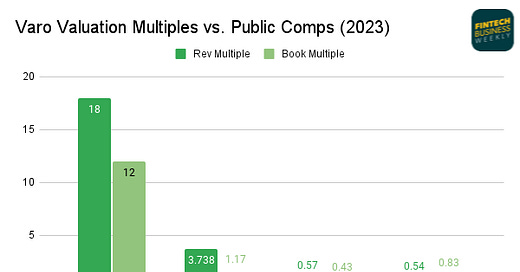Varo Raising $50m In Significant Downround, Term Sheet Reveals
Goldman Ends Checking Beta, Seven Key Takeaways from Block Earnings, EU BaaS Has Regulatory Issues Too, NY Fintech Week Announcement
Hey all, Jason here.
Big congrats to Morten and Elena Kriek on the success of their Banking Renaissance event last week here in Amsterdam! Really enjoyed the chance to hear some thought-provoking sessions, include Brett King’s keynote on what sci-fi can teach us on the future of payments.
For those attending Fintech Meetup in Vegas next month — which is s…



